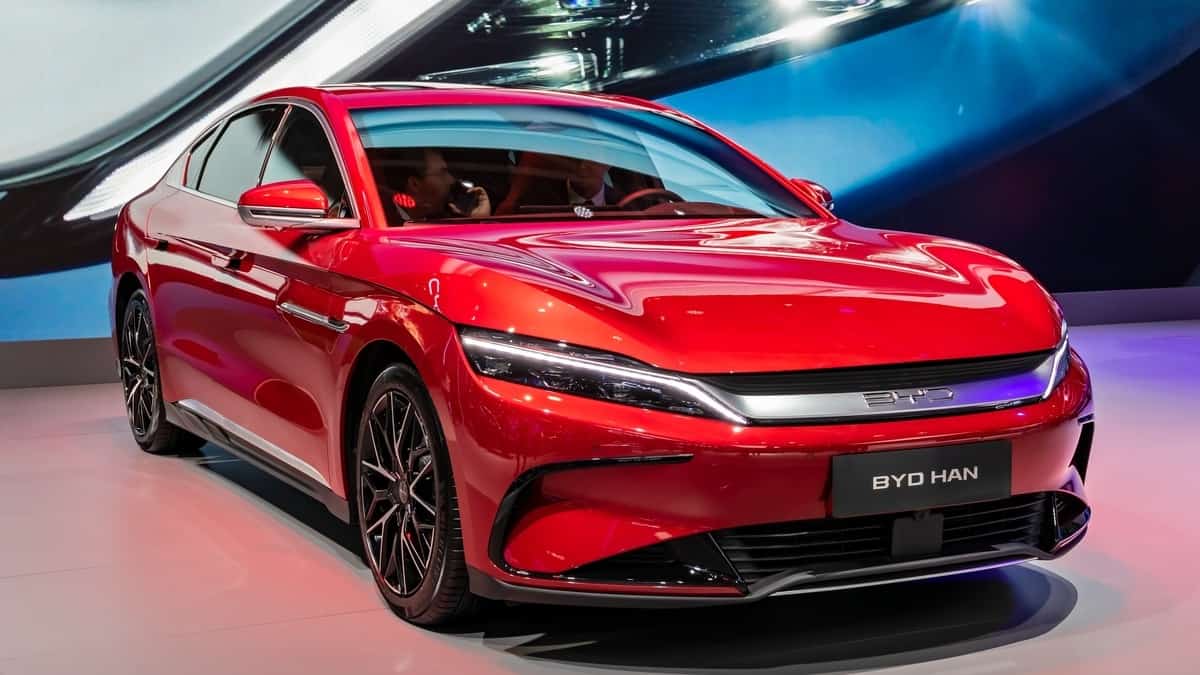German automakers’ sales and delivery figures continue to wane amid the ongoing inflation and increasing operating cost due to the electric vehicle and autonomous driving revolution. Their internal combustion engine-powered vehicles remain profitable, but uncertainty grows about its ending.
German legacy automakers VW, Mercedes Benz, and BMW enjoyed revenue and profit growth in H1 2023, as reported by DW. However, their outlooks for the second half of the year failed to match investors’ and shareholders’ expectations.
In that sense, German Association of the Automotive Industry President Hildegard Müller emphasized that production increase is “not a sign of easing.” He further noted that today’s records remained over a fifth under pre-pandemic levels in 2019. Alarmingly, Germam’s battery electric vehicle market is suffering from weak demand, dropping to around 60% of 2022’s volumes.
Chinese EV market thrives
World’s largest auto market China continues to expand its electric vehicle industry with increasing production and registration figures.
Its advancement is unsurprising given Chinese automakers’ efforts in advancing EV technologies to beat industry leader Tesla. For instance, China Passenger Car Association’s data revealed that Chinese EV and power battery giant BYD beat the Musk-led automaker’s sales by 29% in H1 2023.
VW China Board Member Ralf Brandstätter warned that “a disruption is taking place in this market.” He conceded that BYD surpassed VW’s sales in Q1 2023 in the domestic market, selling nearly twentyfold more than the German automaker.
In response, VW partnered with XPeng for a $700 million investment. The partnership aims to launch two new EV models in the Chinese EV market as early as 2026.
Trickle-down strategy
German automakers previously led the Chinese automotive market for decades by employing a “trickle down” approach. For context, it involves offering their self-developed technologies as options for customers for a premium cost until their Chinese rivals catch up.
“How out of step this product strategy is with the expectations of present-day Chinese car buyers, German OEMs [original equipment manufacturers] are currently getting a first taste of – with alarming implications for the future. As China has moved to the forefront of consumer innovation, Chinese customers have neither the patience for technologies to trickle down the line nor the willingness to pay extra for the latest features.”
Willy Wang, Berylls China Managing Director
However, Chinese automakers’ expertise in digital technologies like advanced driver assistance and infotainment features advanced their positions in the market. Given the country’s traffic crisis, local customers highly favor such features, especially on congested highways. They also view Chinese EVs as comfortable and high-quality models from established companies.
“The German auto industry will likely not play the same dominant role in China’s car sector as it did in the past 20 years.”
Gregor Sebastian, Industry Expert from Metrics Institute
All that said, local automakers now dominate an astounding 80% of all BEV sales in China. Tesla was the only foreign brand in the top 10 rankings without any German brands.
In addition, Chinese automakers are now on track to beat international brands in the overall auto market in 2023 for the first time in history, with a 51% market share. Management Consultants AlixPartners predicts this rate to grow to 65% by the decade’s end.
China also snatched the “world’s automotive export leader” title from Japan in Q1 2023, from being the sixth placer in 2020.
See Also:
- Tesla beats German rivals’ combined sales in the global EV market in H1 2023
- China to dethrone Japan as the World’s biggest car exporter thanks to growing EV adoption
- BYD battery manufacturing expansion: $1 billion plant in India, Sodium-ion batteries in China
- China Update: EV Adoption rate, Tesla and Chinese EV makers market share
- Tesla China reports impressive insurance registrations, poised for strong June sales
Chinese automakers’ strong lead in their home market is unsurprising, given their most advanced technologies for a less premium price. That said, global automakers must strive to develop such technologies without compromising safety, comfort, and price competitiveness to catch up in the Chinese EV market.

